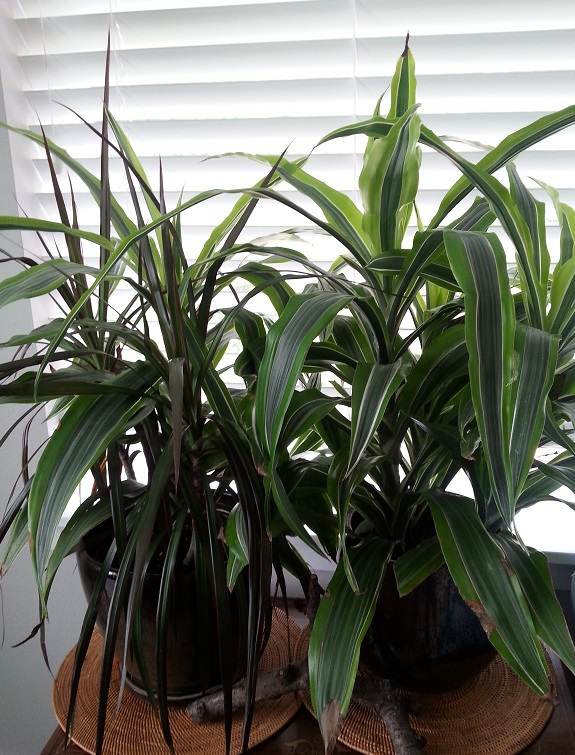Japanese are known for their longevity. The average life expectancy for Japanese males is 82 while for females it’s 87 years old. I’m very fortunate that my parents have reached this average. In fact, my Dad has passed it by ten years! Living a long life is a gift. But, I think most of us will agree that we also want to have our memory.
Recently, my Dad had a minor stroke and his memory began to fade. At times he’s extremely sharp, yet at other times he can’t recall if he had lunch. This loss of memory is difficult for not only my father to accept, but also it’s hard for us kids to come to terms with. And this loss of memory is not only happening to our family. In fact almost all of my friend’s parents have shown signs of loss as they age. This made me wonder if it’s just because we’re all living a lot longer.
When I was growing up in Japan, when people were forgetful, we’d say they were “bokke.” This word didn’t have a negative connotation, it was simply being forgetful regardless of age. But, as people started to age, a common expression was, “bokke ga hajimata” meaning, the “forgetfulness has begun.” From this phrase alone, I find that culturally, being forgetful was one of the normal stages of aging. But, today dementia and Alzheimer’s are classified as a “disease.” I would have thought it was just a condition, but what do I know. And in Japan, with a large aging population, dementia is a growing concern.
I then thought that I really didn’t know the exact difference between dementia and Alzheimer’s. According to National Institute on Aging,
“Alzheimer’s disease is an irreversible, progressive brain disease that slowly destroys memory and thinking skills, and eventually even the ability to carry out the simplest tasks. In most people with Alzheimer’s, symptoms first appear after age 60. Estimates vary, but experts suggest that as many as 5.1 million Americans may have Alzheimer’s disease.
Alzheimer’s disease is the most common cause of dementia among older people. Dementia is the loss of cognitive functioning—thinking, remembering, and reasoning—and behavioral abilities, to such an extent that it interferes with a person’s daily life and activities. Dementia ranges in severity from the mildest stage, when it is just beginning to affect a person’s functioning, to the most severe stage, when the person must depend completely on others for basic activities of daily living.”
So basically, Alzheimer’s is a type of dementia. And this is what I found on alz.org “But there are many other conditions that can cause symptoms of dementia, including some that are reversible, such as thyroid problems and vitamin deficiencies.” and they say, “dementia is caused by damage to brain cells”
So, now I know what it is. The main concern for me is, how to prevent it, or how and if it can be reversed. Well, I do enjoy researching things on the internet. And thankfully there was a lot of information to be found. The most convincing of my discoveries were these YouTube videos on the effects of coconut oil to those who have lost memory. These videos are physical proof that consuming small does of coconut oil does reverse memory for some. The first video features a Canadian man who explains his whole experience in a very warm and genuine way.
The second video features an Australian couple who describe the experience of the husband with memory loss, and how his wife helped him gain it back thanks to the help of information on the internet. He noticed a change in his depression, caused by memory loss, in one week. Amazing right? This is when I love the internet! And many thanks to those who have shared this valuable information.
Both videos mention that they got their information from Dr. Mary Newport, who wrote the book,
Alzheimer’s Disease: What If There Was a Cure?
These people are living proof that just taking coconut oil on a daily bases can and does work for some people. We don’t have to wait for scientific proof that it works. Furthermore because it’s natural, there are no side effects. What’s there to lose?
So, my sister and I started my Dad on coconut oil. We began by giving him 2 tablespoons in the morning and two in the evening, mixing it with yogurt. Because of the warm temperature in Hawaii, coconut oil is a liquid. However, here in the Northwest, it’s a solid. You can microwave it for about 30 seconds and it will melt easily. I was only in Hawaii for a couple weeks. So, my other siblings stepped in. According to my Mom, and sisters, my Dad is showing signs of improvement. Although slow, it’s definitely there! Amazing!
If you have loved ones who are experiencing memory loss, why not suggest trying coconut oil? Or, if you’re like me, and you do notice you are more forgetful than in the past, why not take some coconut oil yourself every so often. There is no harm. Some of my friends started cooking with it. I tried it with a stir-fry, but I still could taste the coconut and didn’t like it. Maybe in more Western dishes it may not be as noticeable. My choice is to just eat it plain. I heard some have it in their hot drinks like coffee or tea. Be creative and add it to your diet throughout the week.
If you know someone who has memory loss, why not give this a try. Let me know if you get results!
This is what we bought, but I’m sure there’s many other brands.




